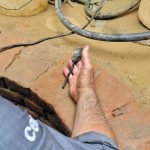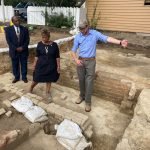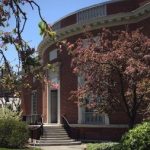This is a great little Facebook post from the Jamestown Rediscovery Project: What’s an archaeologist’s white whale? A copper alloy spoon, apparently! Director of Archaeology Dave Givens always wanted to find a copper spoon – it was one thing he […]
early America
Is Colonial Williamsburg going “woke”?
Some on the right believe that Colonial Williamsburg’s commitment to telling the full story of the 18th-century city means that the world’s largest living history museum is going “woke.” I would argue that Colonial Williamsburg is trying to tell a […]
Episode 102: The Ghosts of Colonial Williamsburg
Our guest on this episode, public historian Alena Pirok, explains how John D. Rockefeller’s vision of Colonial Williamsburg eventually gave way to a vision of the site championed by an early 20th century clergyman who saw ghosts. Join us for a conversion […]
Harvard’s Houghton Library digitizes its early American manuscripts
Here is Anne Buress at The Harvard Gazette: In a recent virtual curatorial discussion, Houghton librarian John Overholt took an item from the Colonial North America collections to share with his audience. Rather than highlighting a letter from John Hancock or a […]



